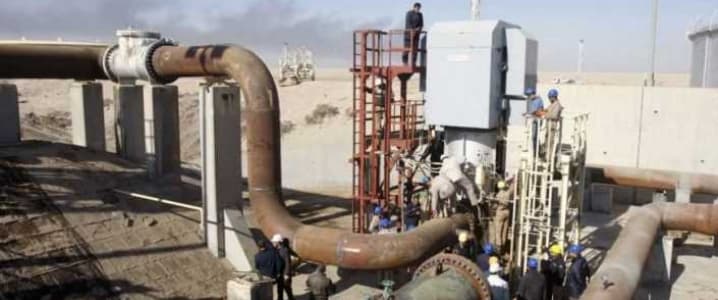An agency little-known outside accounting circles recently issued draft rules to change the standards which govern the verification of the year-end oil and gas reserves of public companies. The change would increase the burden of an audit, but the agency sees the need to tighten the scrutiny of such estimates. If they are right, then some companies will see downward revisions of reserves, their single greatest asset, as the rules become effective over about the next two years.
The Public Company Accounting Oversight Board (PCAOB) governs the auditors which validate the financial filings of public companies in the U.S. It was created along with Sarbanes-Oxley reforms and endowed with the power to license, discipline and revoke licenses for the auditors themselves, and it has become the official gate-keeper of one set generally accepted accounting practices. Both the public companies and the PCAOB answer to the U.S. Securities Exchange Commission (SEC). Its decisions, thus, have about the same import as the regulations of the SEC itself.
Early this summer, after more than two years of discussions with auditors and third-party specialists, PCAOB formally proposed two rule changes for public commentary concerning:
- how auditors use of the work of specialists (read "reservoir engineers"), and
- how the audit itself, including the work of specialists, examines accounting estimates (read "reserves").
Approximately 200 oil companies fall under the governance of the SEC and PCAOB when reporting reserves, and, of those, about 80 percent use third-party engineering firms. Some rely mainly on internal reserve estimators but overlay a review by a third-party consulting firm to audit reserves, in the aggregate. In many cases, companies hire a third-party engineering firm to conduct the reserve calculation independently.
Though the engagement may take several forms, the third-party engineering firm usually works directly for and with the company and then supplies to the accounting auditor its credentials and a letter or report of its findings. For decades, the system has been accepted, but the PCAOB has now found it necessary to "strengthen requirements for evaluating the work of a company's specialist" whether that specialist is "employed or engaged by the company."
Due to the fact that the engineering firm is hired by and works directly with the company, its work could no longer be regarded by auditors of public companies with the same deference and assumption of independence. Instead, the work would be assessed by the auditor with the same "professional skepticism" as other estimates promulgated by management. In short, if a company hires the "third party engineer" then the results could be treated with no more deference than if the reserves were prepared by internal engineers. Related: Daily OPEC Oil Prices Now Public For The First Time Ever
Auditors who previously were able to rely on the estimation or valuation work of specialists both internal and external with little additional testing will soon be required to apply more rigorous standards of examination to estimates from both sources. The second in the pair of proposals "emphasizes that auditors need to apply professional skepticism and devote greater attention to potential management bias when auditing accounting estimates" by prescribing more about how the audit should be conducted. The PCAOB explained that they intend "to prompt auditors to devote greater attention to addressing potential management bias" by imposing three themes:
- prompting “auditors to devote greater attention to addressing potential management bias in accounting estimates, while reinforcing the need for professional skepticism”
- extending key requirements for substantive testing beyond merely understanding, and
- integrating risk assessment standards. (That is, expand the standards for describing risks the company faces generally to apply more uniformly to specific accounting estimates.)
The proposed rules also detail what they expect from substantive testing, including
- examination of assumptions, data and methods to confirm that they are reasonable and supported by verifiable documentation,
- a process audit of how the company went about preparing and controlling the estimates, and
- evaluation of a "company's intent and ability to carry out a particular course of action".
Applied to reserves estimates, these new standards will require a deeper and wider analysis from auditors than they have exercised previously. The triangle of companies, engineering firms and auditors will have to rearrange itself substantially.
Comments from the general public are due to the PCAOB by the end of August, including on the time frame for implementation of the new standards. If history is a guide, changes in the proposed rules will be modest and they will come into effective in short order, likely by yearend 2018. Even for private companies, the standards set by the PCAOB affect what the auditors and other bodies see as the standard for “best practices.”
ADVERTISEMENT
In a few years, the process of year-end reserves could look a lot different than it does today, and the process of implementing the new rules could make for a rude awakening to oil companies and their investors if the engineering work and its documentation do not satisfy the closer inspection of a truly independent reservoir engineer.
By Dwayne Purvis for Oilprice.com
More Top Reads From Oilprice.com:
- Saudis To Take ‘Significant’ Measures To Bolster Oil Prices
- U.S. Sanctions On Russia Could Be "Wide And Indiscriminate"
- Saudi Arabia Regains Influence Over Oil Markets


















